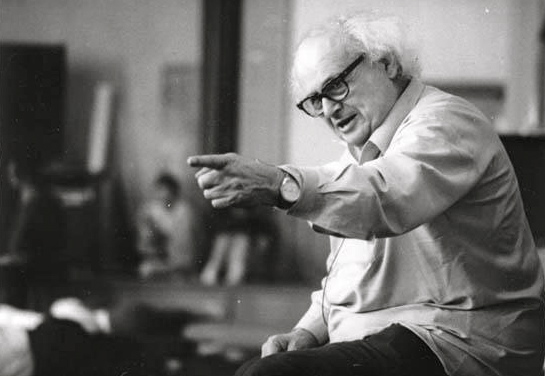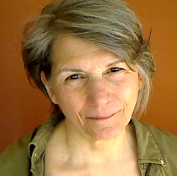 Moshe Feldenkrais was my trainer in San Francisco. Profound as his effect was on my life, I was one of the vast number of colleagues I’ve encountered over the years who struggled when I graduated from my training.
Moshe Feldenkrais was my trainer in San Francisco. Profound as his effect was on my life, I was one of the vast number of colleagues I’ve encountered over the years who struggled when I graduated from my training.
After nearly 45 years of practice and 30 years as a trainer, after many trials and plenty of errors, I’m at a place in my life where I’m more interested in using what I know to help more people, than I am in squeezing the last available penny out of every minute of my day. It’s important to make the most of what I know and how I can help, so I think about that at random moments.
The other day, I asked myself, “What if I offered some free calls for practitioners who are just getting started, where they could ask anything about having a practice and get an answer on the spot?”
My inner voices gave me a resounding “Hell yeah! — as long as the operative words are fun, community, shared information and inspiration.“
So I created a way to do that, and you’re invited.
All you have to do is put your name and email address into the form that just popped up–or click here–and register!
Maybe you have some of these questions about this…
Is this private coaching?
Not intentionally, but if you’re the only one who shows up, it’s a private call. If there are others, it’s a group.
Are you going to try to sell me something on these calls?
No.
However, over the last 12 years, I’ve created a lot of programs for practitioners. If what you’re struggling with is addressed by one of them and I think it’s a great fit for you, I’ll mention it.
I’m not going to go into detail about it and there’s no obligation to buy anything.
Are you recording the calls? Can I listen later?
My intention is that these are live calls where you can ask me anything that’s relevant to where you are now in your practice.
That said, I know there are a lot of people who just can’t make it, for whatever reason.
So I’m going to create a course where the calls will “live.” My courses are connected to my email list, so as long as you stay on my email list, you’ll have access to the course.
Sounds too good to be true… what’s the catch?
Does there always have to be a catch?
I’m approaching 72 and I’ve been watching practitioners graduate from training programs for decades without feeling like they can support themselves. Sometimes that goes on for the rest of their lives, and I know a lot of practitioners think that’s how it will always be.
I have a lot of experience helping people build a sustainable practice and I’m offering to help you do that, too.
So… you get on my email list so that I can give you access to the course and send you something every week that has to do with getting the practice you want. Other than that, there’s no obligation.
I won’t even ask you to vote for me as your favorite trainer when the MOSHEs come around next time.
Who the heck are you, anyway?
 Fabulous question… and thanks for asking because I love it when someone new steps into my sandbox.
Fabulous question… and thanks for asking because I love it when someone new steps into my sandbox.
I’m Allison Rapp and since 2010, I’ve been helping holistic practitioners build a satisfying and sustainable practice. I’ve created programs to help you attract new clients, have a successful first session that results in a long-term client, give a talk, and much more.
My modality is Feldenkrais®—I graduated from Moshe’s first North American training program in 1977.
Are you starting from the get-go? I’ve done that 4 times, in Vancouver BC, Washington DC, Morgantown WV, and Grass Valley, CA. It sucks when you don’t know how to make it easy.
I’ve been a trainer since 1991 and have taught on 3 continents and some islands in the middle of big oceans or good-sized lakes and in every place around the world where training was happening, there were practitioners who were struggling.
As I sorted out why so many of us have so much trouble, I became certified as a coach in Perceptual Styles and in Tribal Marketing.
My private practice is currently online, where I focus on group classes for people who want to remain independent as they get older.
